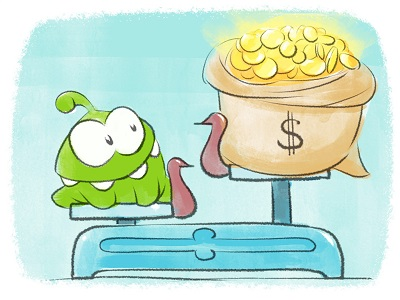| Zepto Code Rush 2014 |
|---|
| Finished |
All modern mobile applications are divided into free and paid. Even a single application developers often release two versions: a paid version without ads and a free version with ads.

Suppose that a paid version of the app costs p (p is an integer) rubles, and the free version of the application contains c ad banners. Each user can be described by two integers: ai — the number of rubles this user is willing to pay for the paid version of the application, and bi — the number of banners he is willing to tolerate in the free version.
The behavior of each member shall be considered strictly deterministic:
- if for user i, value bi is at least c, then he uses the free version,
- otherwise, if value ai is at least p, then he buys the paid version without advertising,
- otherwise the user simply does not use the application.
Each user of the free version brings the profit of c × w rubles. Each user of the paid version brings the profit of p rubles.
Your task is to help the application developers to select the optimal parameters p and c. Namely, knowing all the characteristics of users, for each value of c from 0 to (max bi) + 1 you need to determine the maximum profit from the application and the corresponding parameter p.
The first line contains two integers n and w (1 ≤ n ≤ 105; 1 ≤ w ≤ 105) — the number of users and the profit from a single banner. Each of the next n lines contains two integers ai and bi (0 ≤ ai, bi ≤ 105) — the characteristics of the i-th user.
Print (max bi) + 2 lines, in the i-th line print two integers: pay — the maximum gained profit at c = i - 1, p (0 ≤ p ≤ 109) — the corresponding optimal app cost. If there are multiple optimal solutions, print any of them.
2 1
2 0
0 2
0 3
3 2
4 2
2 2
3 1
3 1
2 2
1 3
0 4
3 4
7 3
7 2
4 2
| Name |
|---|




